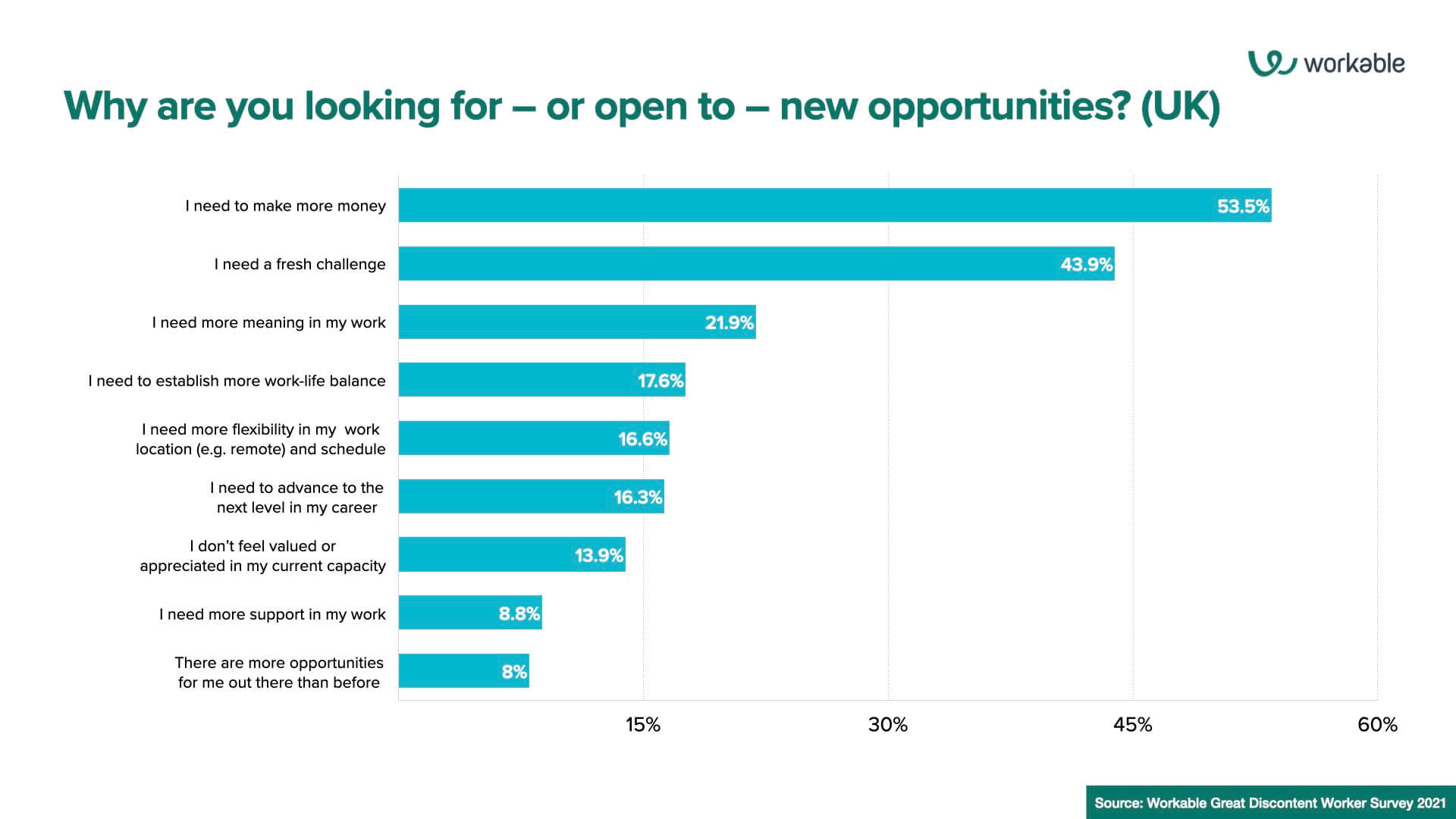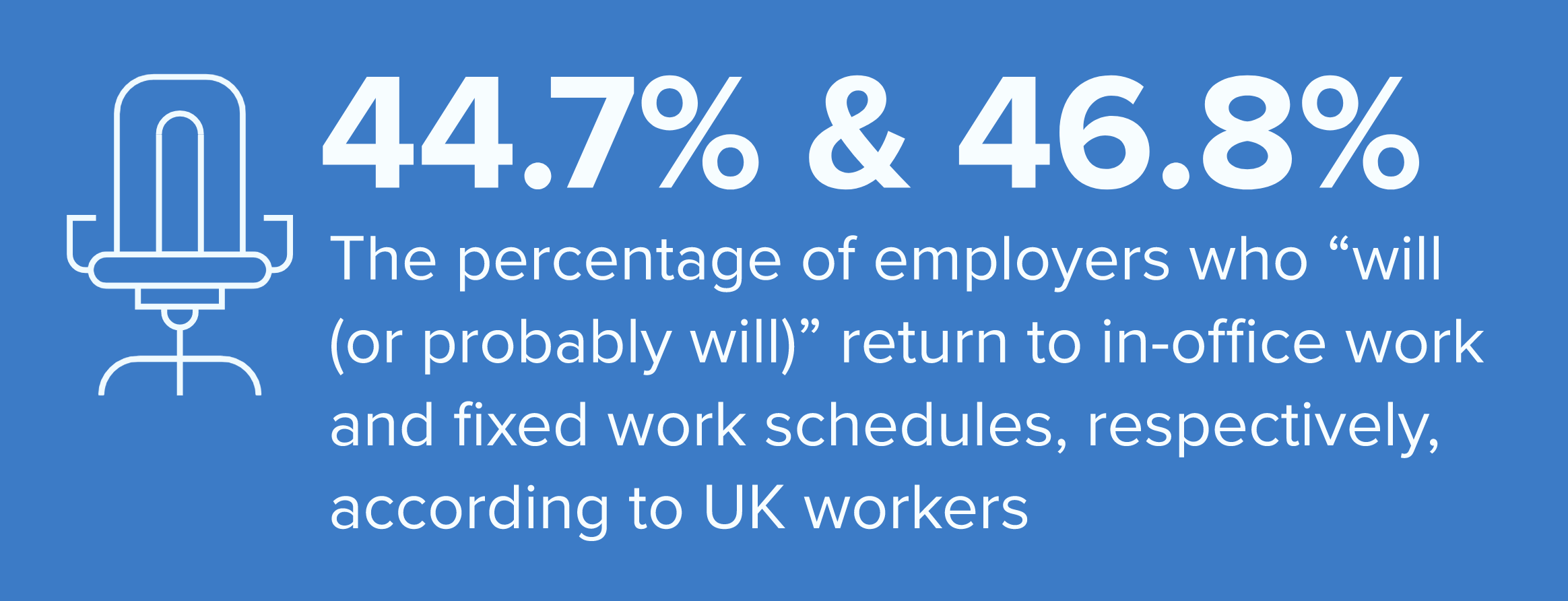Flexwork a must for 43.5% of UK workers – but are employers listening?
According to UK workers polled in the Great Discontent worker survey, work flexibility – whether that’s remote work or flexible schedules or both – is the second-most popular benefit if an employer wants to attract new hires from another company, with 43.5% of respondents picking that as one of their top three attractors.

It’s also the third-most popular item that workers want to see improved at their current place of employment (27.4%).
It’s not just that flexible work has benefits – it’s a highly desired, and in many cases, much-needed component of work. If you, as an employer, can realistically offer this option – especially flexible schedules – your profile as a desired place to work will grow in the eyes of people looking for new work. In short, it’s a significant value prop in your arsenal.
And if you don’t offer flexible work, especially if you could, the consequences could be considerable. Consider the backlash against Apple in their initial drive to move back to an in-person working environment. Employees left in droves for other options, and the media coverage was fierce and uncompromising. This can’t reflect well on Apple’s reputation as an employer.
Sure, a return to office has its merits – and in some cases, requirements – but in many cases, businesses have the technology and wherewithal to make it work. What’s more, the many employees who kept working in a remote fashion from the onset of the pandemic to today have proven that they know how to do it.
The second lesson is that for workers, an outstanding brand reputation such as Apple’s doesn’t even matter that much (more on that below). Rather, people simply want the option to work flexibly.
“My company is unlikely to allow any home workers when restrictions end and it gives me great concern. I want to be able to work flexibly and from home at least occasionally.”
We’re going to see more of this kind of situation – a misalignment of priorities between employees and their employers – going forward. When we asked respondents about the current situation in regards to remote/hybrid work at their place of employment, 44.7% say their employer introduced remote or hybrid work during the pandemic and will (or probably will) return to on-location work once things stabilize.
The same discrepancy in expectations goes for flexible work schedules as well, with 46.8% saying flexible work schedules were introduced during the pandemic and will (or probably will) go back to set schedules when things return to ‘normal’. (Side note: ‘normal’ may not even be a reality anymore.)
This marks a vast chasm between employees and employers. Many employees like remote work and especially love flexible schedules. Many even need one or both. And a good portion of employers aren’t adapting to that new reality – the stigma against flexible work doesn’t help much, either.
“I think most office workers are able to work as productively, if not more so, than in an office environment. Bosses, who usually aren’t very good, don’t think that’s possible.”
With such a resounding voice in our dataset valuing flexible work, consider establishing it as a permanent strategy where possible if you want to attract new talent and retain your existing employee base. Your success as a company may depend on it.






